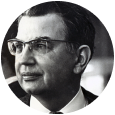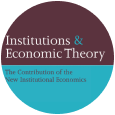Decentralized Governance Timeline
The Decentralized Governance Timeline tracks the progression and milestones in the field of decentralized governance from its early theoretical concepts to modern implementations in DAOs and digital platforms. It provides a historical perspective on how decentralized governance has evolved, highlighting key contributions and shifts in the landscape over the past decades.

1937
Founder: Ronald Coase
Ronald Coase’s pivotal theories on transaction costs and property rights set foundational concepts for decentralized governance.
- Nobel Prize Winner (1991)
- “Nature of the Firm” (1937)
- “Problem of Social Cost” (1960)

1990s-2000s
Extension & Applications of NIE

This era expanded the application of New Institutional Economics, spearheaded by key scholars who deepened the understanding of institutional impacts on economic systems.
Influential Contributors:
- Rudolf Richter
- Eirik Furubotn
- Christian Kirchner

1970s-1980s
New Institutional Economics


This period marked significant contributions to the field of New Institutional Economics, enhancing the understanding of how institutions impact economic performance and governance structures.
Nobel Prize Winners:
- Douglass North (1993)
- Oliver Williamson (2009)
- Elinor Ostrom (2009 – first woman to win)

2010s-2020s
Practical Implementation in DAOs
This period marks the practical application of decentralized autonomous organizations (DAOs), driven by advancements from leaders like Wulf Kaal and Craig Calcaterra, who played pivotal roles in applying decentralized governance concepts to real-world structures.
Key Innovators:
- Wulf Kaal
- Craig Calcaterra
The Evolution of Decentralization in Governance</span
The evolution of decentralization research can be traced back to Ronald Coase’s “The Nature of the Firm,” which highlighted the role of transaction costs in organizational boundaries. Oliver Williamson and other New Institutional Economists built on this by developing transaction cost economics, emphasizing the trade-off between coordination costs and specialization benefits in organizational structures. Elinor Ostrom’s work on common-pool resource management demonstrated that decentralized governance could achieve better outcomes, while Douglass North’s research on institutions underscored their importance in economic development and growth.
The advent of Distributed Autonomous Organizations (DAOs), enabled by blockchain technology, represents the latest development in decentralization. DAOs are self-governing networks that operate through smart contracts, eliminating the need for centralized control. The evolution of decentralization as an idea has been shaped by Coase, Williamson, Ostrom, and North, and then expanded upon by Christian Kirchner, Rudolf Richter, as well as Wulf Kaal and Craig Calcaterra and now finds practical application in innovative structures like DAOs.
